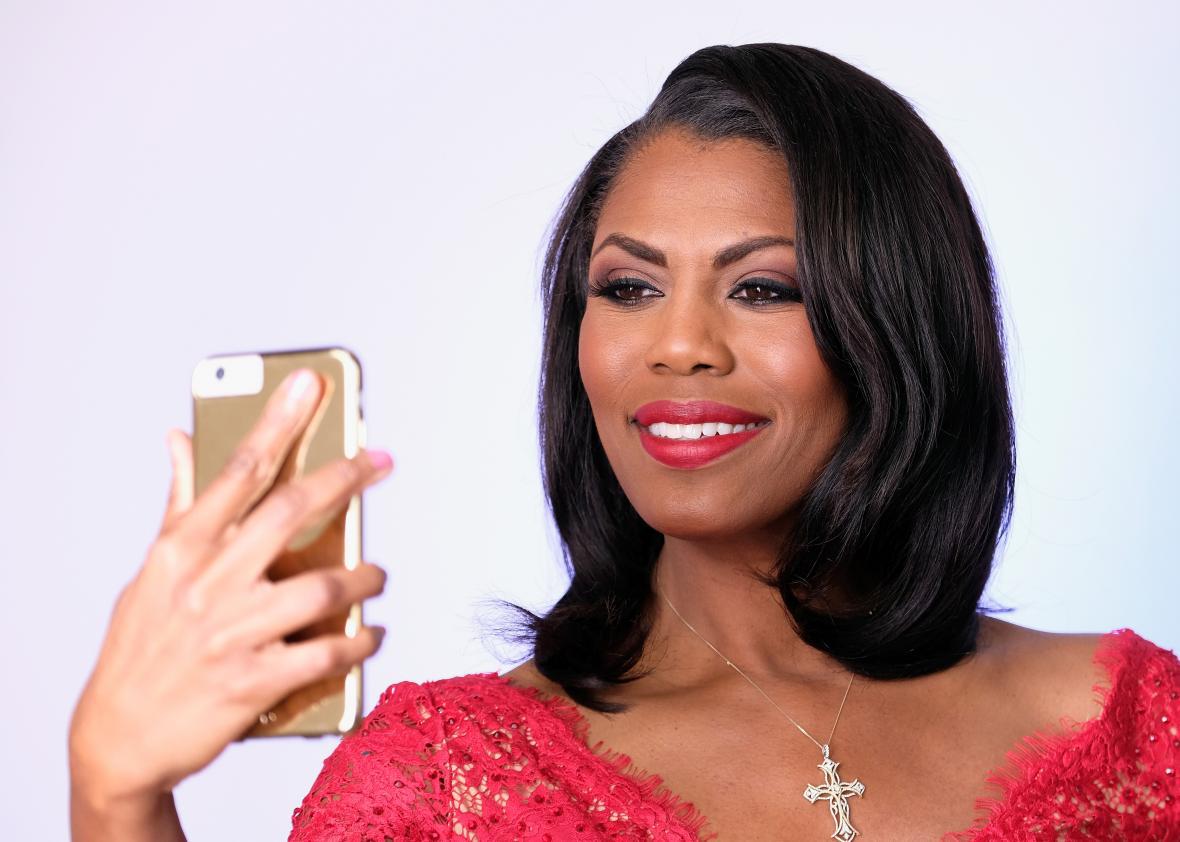On Thursday, Page Six published an article detailing discord happening behind the scenes at this year’s National Association of Black Journalists Convention. At the eleventh hour, Omarosa Manigault, director of communications for President Trump’s Office of Public Liaison, had been added to the organization’s annual W.E.B. Du Bois plenary. Soon, New York Times journalist Nikole Hannah-Jones, who was scheduled to serve as moderator, and one panelist, the New Yorker’s Jelani Cobb, had pulled out of the event. Cobb told Page Six, that his decision “wasn’t simply [about] the addition of Omarosa … it was unclear whether we would be able to discuss substantive issues regarding the administration and its policing policies.”
This plenary happens yearly, and features a conversation about current issues black journalists are dealing with in their newsrooms. Past conventions have discussed whether the Obama administration was restricting government access to journalists, while in another year they highlighted the global response to the the #BringBackOurGirls movement. This year, conference goers were anticipating what the description of the event, titled “Black and Blue,” suggested: a debate that ignored “the attention-getting tweets, and ‘breaking news’ alerts and focus[ed] on the people and policy that have a direct effect on the future of black America.” Instead, what attendees got was best described by the replacement moderator, Bounce TV’s Ed Gordon—“a hot mess.”
The room was tense as journalists, who had been waiting in line, started to file in 15 people at a time. The room quickly reached capacity and many more journalists were stuck outside the session doors. Despite the unease, the session started off strong. Valerie Castile, Philando Castile’s mother, and Sandra Sterling, Alton Sterling’s aunt came on stage and graciously shared their stories and pain with the audience.
When asked about her nephew’s background being the focus of many media reports, Sterling said, “Everybody has a past. And for the media to bring that up makes me want to do a background check on them.” Valerie Castile had no advice on what to tell young black kids about dealing with police, stating that her son did everything right but was still dead at the hands of law enforcement. The strength and resilience of these two women, who received a standing ovation from the room, was palpable. Unfortunately, that sobering conversation has already been overshadowed by what happened next.
A panel that included community activist Arthur Reed, Buzzfeed’s Joel Anderson, the Root’s Jason Johnson, and retired LAPD sergeant Cheryl Dorsey, came on stage to talk about the political realities of how law enforcement engages with black America. They spoke for about 15 minutes before Omarosa was invited onto the stage to join them. She began by sharing a personal story about the violent deaths of her father, Jack Manigault Sr., and her brother, Jack Thomas Manigault Jr. She then addressed panelist Joel Anderson’s comments made before she came on stage, questioning what she had done for people who have lost loved ones to the police: “I fight on the front lines everyday.” This statement caused the room to erupt in laughter.
Gordon told me after the event that he was ready to hold her accountable for the administration she represents by tying in her personal story with the administration’s policy, but Manigault appeared ready for a fight. She refused to allow Gordon to finish his first follow up question, and he pushed back, insisting she respect the room. Eventually, she stood up and accused him of being aggressive. If this had been a reality TV show, this is where we would cut to commercial, so the viewers could catch their breaths.
In an effort to diffuse this standing match, organizers cut in with a clip of Trump’s recent speech encouraging police to be “rough” with people whom they arrest. After being pushed to speak to these comments from her boss, Manigault said, “I don’t work for the justice dept.” “We know. Why are you here?” mumbled a journalist sitting in my row. By then, several journalists were standing with their backs to the stage in protest.
What would have happened had Gordon simply asked her a follow up question about her loss? If he had been more strategic in the game she obviously came to play? “She clearly chose to venture into, what I think was disrespect to the crowd,” Gordon told me afterward. “It was my understanding that she was there to talk about her personal story, but also to be a representative of this administration. And I certainly suggested to [the NABJ] that that was the only reason I would participate.”
